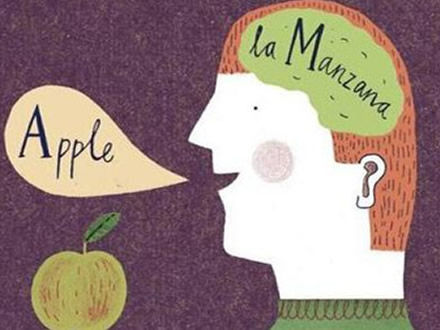万万想不到:21个出国旅游不能乱说的单词
France
 万万想不到:21个出国旅游不能乱说的单词
万万想不到:21个出国旅游不能乱说的单词法国
Preservative:Avoid asking about preservatives in France; you’ll probably be met with strange looks. It means ‘condom’ in France。
Preservative:在法国不要询问preservatives(防腐剂);别人会用奇怪的眼神看你。它在法语里的意思是“避孕套”。
French Letter: Don’t say french letter unlike in other nations of the world, it simply means a condom in France。
French Letter:不像在世界其他国家,在法国不要说french letter(法国的信)这个词,在法语中这个词就是“避孕套”的意思。
Bra: Do you sell luxury underwear? Whilst you and I might initially understand the word to mean a garment that covers the breasts, if you’re in France your French colleagues might think you’re selling arms. Literal
Bra:你是卖奢侈内衣的吗?你我都首先把这个单词理解为“覆盖在胸部的衣服”,但是如果你在法国,那里的同行会以为你在卖武器,字面上是这个意思。
Norway
挪威
Pick: If you’re visiting Norway, don’t use the word ‘pick’. Your Norwegian colleague is unlikely to be impressed – it means ‘dick’ over there。
Pick:如果你去挪威,不要用pick(挑选)这个词,挪威的同事不会对你有好的印象——在挪威它的意思是“男性生殖器”。
Fitter: Does your business specialise in fitness products? Be mindful that in Norway, the word ‘fitter’ refers to a woman’s genitals。
Fitter:你们公司专门经营健身产品?那在挪威你要注意了,fitter(更健康)指的是女人的生殖器。
Turkey
土耳其
Peach: Going to Turkey? Avoid asking for a peach in the supermarket or anywhere else for that matter. It means ‘bastard’ in Turkish。
Peach:要去土耳其?在超市不能索要peach(桃子),在任何其他地方也不能提到这个词,它在土耳其的意思是“私生子”。
Germany
德国
Gift: ‘Never look a gift horse in the mouth’, we’re told; perhaps more so in Germany where the word means ‘poison’。
Gift:我们都被教育“馈赠之物,切莫挑剔”;可能在德国更是这样,在那儿,这个单词的意思是“毒药”。
Latte: In Germany, latte doesn’t mean the frothy, milky concoction you get from your local Starbucks. It means ‘erect penis’ in some German quarters。
Latte:在德国,latte(拿铁)不是指你从当地星巴克买到的泡沫多的、含牛奶的混合物,而是在一些地区指“勃起”。
Korea
韩国
Salsa: Out for a Mexican in Korea? It’s probably best not to ask for salsa: it means ‘diarrhoea’ in Korean。
Salsa:在韩国想追求一个墨西哥人?最好不要请她跳salsa(萨尔萨舞),它在韩语中的意思是“腹泻”。
Sweden
瑞典
Speed: Try not to talk about speed when in the company of others in Sweden. It means ‘fart’。
Speed:在瑞典,和别人在一起时不要讨论speed(速度),它的意思是“放屁”。
Bump: If you’ve had the misfortune of a bump on your car, note that the word ‘bump’ in Swedish means ‘dump’。
Bump:如果你不幸把车撞了,要注意在瑞典bump(碰撞)这个词的意思是“倒垃圾”。
Speed bump: Put the above two words together and you have the phrase ‘speed bump’, which in Swedish means fart dump。
Speed bump:把上面两个词连一起,就是speed bump(减速带),在瑞典语中的意思是“放屁倒垃圾”。
Kiss: If you ask your Swedish host or hostess for a kiss, they might very well direct you to the toilets. In Swedish, the word means ‘pee’。
Kiss:如果你向瑞典的男女主人索吻的话,他们很有可能会带你去厕所。在瑞典语中,这个词是“尿”的意思。
Portugal
葡萄牙
Pay Day: If you’re in Portugal, refrain from singing with happiness that it’s ‘pay day’. No one will be impressed. In Portuguese it means “I farted”。
Pay Day:如果你在葡萄牙,不要听到pay day(发薪水的日子)就开心得不得了,别人不会对你有好印象的,在葡萄牙语中,pay day 的意思是“我放屁了”。
Exquisite: Extend a compliment to your Portuguese host by describing something belonging to them as ‘exquisite’ and you might be met with askance looks: ‘esquisito’ in Portuguese means ‘weird’。
Exquisite:称赞葡萄牙的男主人时,要是说他的某个东西很exquisite(精致),他会投来怀疑的目光:这个词在葡萄牙语里的意思是“怪异的”。
Hungary
匈牙利
Cookie: If you’re visiting Hungary, whether on business or for pleasure, avoid asking for a cookie. It means ‘small penis’ in Hungarian。
Cookie:如果你正在匈牙利,无论是出差还是游玩,都不要索要cookie(饼干)。在匈牙利语中它的意思是“小阴茎”。
Japan
日本
Jerry: It’s perhaps a little late for Ben & Jerry’s ice cream, but if you’re in Japan, avoid using the word – it means ‘diarrhoea’ over there。
Jerry:现在买本·杰瑞的冰淇淋可能有点晚了,但如果你在日本,就不要用这个单词——在那儿的意思是“腹泻”。
Italy
意大利
Tremendous: Refrain from boasting about the tremendous prices you offer your clients. In this country, ‘tremendo’ is the word for ‘terrible’。
Tremendous:避免吹嘘你给客户报的价格是tremendous prices(高昂的价格),在这个国家里,tremendo是“糟糕”的意思。
Netherlands
荷兰
Bill: Asking for the bill might raise a few guffaws in the Netherlands: ‘bill’ means ‘buttocks’ there。
Bill:在荷兰索要bill(账单)可能会引起哄堂大笑:在那儿的意思是“臀部”。
Lager: It might confuse your Dutch colleagues if you were to ask for a ‘lager’ when having a few drinks with them after work. Lager means ‘storage’ in Dutch。
Lager:如果你下班后和荷兰的同事一起喝酒时索要lager(窖藏啤酒),他们可能会蒙了。这个词在荷兰语中的意思是“仓库”。
Spain
西班牙
Cool: The word cool is too close for comfort to the Spanish word ‘culo'; a crude term for ‘bum’. Best avoided。
Cool:cool(凉爽)这个单词的意思太接近西班牙语的单词culo,是“流浪汉”的一种粗鲁的说法,最好不要用。
So be careful when you make use of these words during communication so as not to get lost with contrary meaning and interpretation。
所以,在和别人交流时使用这些词要注意,以便不会错误地表达成相反的意思或解释。
(来源:沪江英语)
- 拒绝逗比 出国要慎用的8个英文单词(图)2014-11-20 09:35
- 双语:出国旅行常用口语表达之就餐英语2015-01-08 18:02
- 舌尖上的口语:出国旅游如何让人帮你拍照2014-12-09 13:57
- 情景对话:出国旅行过海关必备口语2010-05-24 17:13
- 不出国一样学口语 北京推出情景式英语夏令营2009-09-01 16:14

